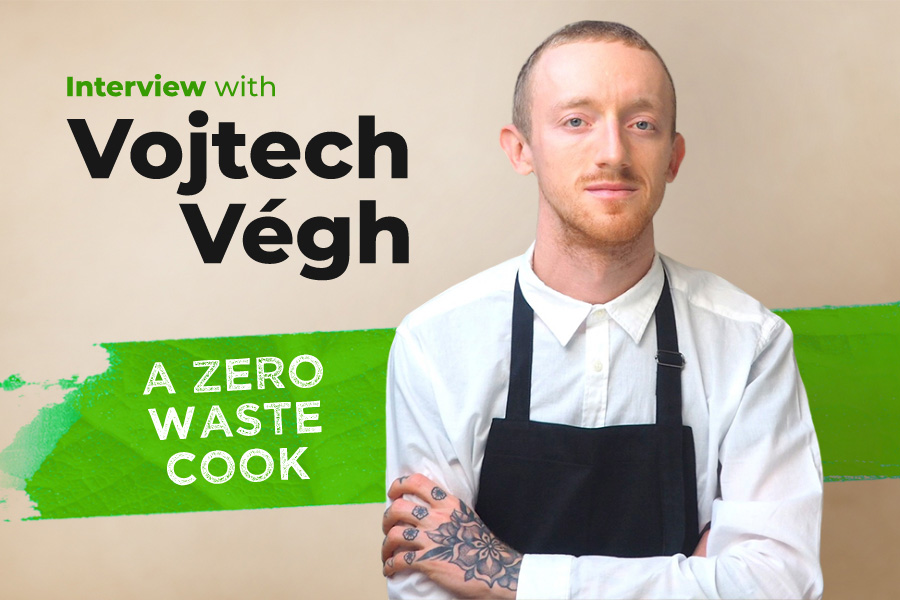
We recently interviewed zero-waste and plant-based chef Vojtech Vegh. With over 10 years of experience worldwide as a chef, Vojtech has worked in small restaurants, large resorts, bistros, and some of the world’s best and most innovative restaurants. He then returned to Slovakia where he went to work for some of the leading restaurants in the country.
Vojtech promotes zero-waste and plant-based cooking in the hospitality industry. With a strong belief in sustainability and a plant-based future, Vojtech was upset with the amount of food that being wasted in kitchens worldwide.
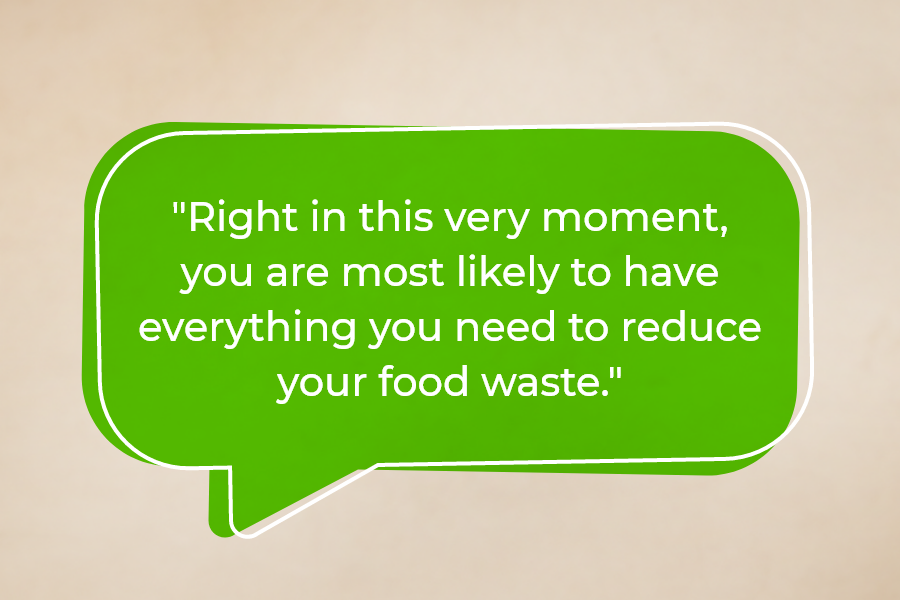
He’s not only a zero-waste and plant-based chef, as he is now the author of a new book called ‘Surplus: The food waste guide for chefs.' Continuing with his strong beliefs in sustainability, zero-waste, and a plant-based future, Vojtech outlines how chefs can effectively reduce and prevent food waste in a professional kitchen. He provides an insight into how to cook without food waste, save costs, how to run a kitchen without a bin and more.
Hi Vojtech, thank you for your time to answer a few questions for us.
What was your inspiration to become a zero-waste and plant-based chef?
It all started after working in a few fine-dining restaurants. There’s a tremendous amount of food waste in some of the kitchens and I felt that it’s not right. I have also seen the repeating pattern of using meat as the main product on the plate which I disagreed with. I like to challenge the common notions and I always knew I wanted to open something on my own, so doing it in a zero-waste and plant-based fashion was the only way.
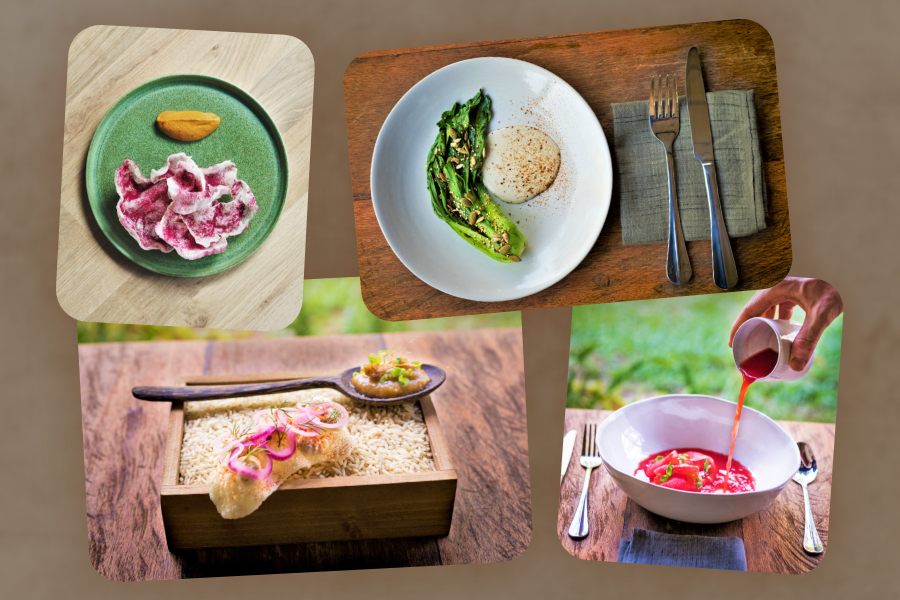
You opened a vegan zero-waste restaurant in Cambodia? Why did you choose Cambodia?
I was travelling to Southeast Asia regularly for the past few years. I visited Siem Reap and loved the community in the town. There are some great social businesses and lots of small entrepreneurs that are focusing on the waste issue. It made sense to open my restaurant there as it fit perfectly into the local scene. I had no intention to open the first zero-waste vegan restaurant, in fact I didn’t even plan for it to be vegan in all honesty. It was a coincidence of quality meat being unavailable in Cambodia, and as I didn’t want to serve anything other than the highest quality products, I chose to open a fully vegan restaurant. So, I unintentionally opened the a zero-waste and vegan restaurant.
What’s been the biggest challenge operating a zero-waste restaurant?
Unsurprisingly, not creating waste. I have carefully planned every step and process to make sure that there is no waste created, but some waste is created anyway. Some deliveries were delivered in plastic wrapping, or guests were leaving plastic bottles at the table. I had no bin in the kitchen, so I had nowhere to put it. Going full on zero-waste is a great limitation, as not everyone is willing to cooperate. I had to talk to lots of people and distributors to make sure there is no unnecessary waste created in the process.
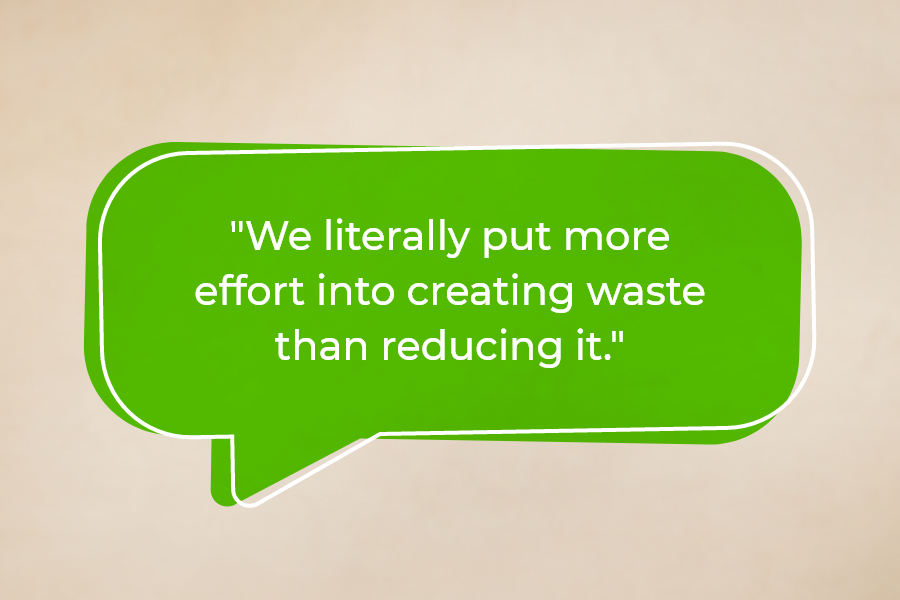
Is it hard to have a restaurant where you put a huge emphasis on organic and local ingredients?
It depends on the country. It can be easy in a country such as Denmark or England where organic ingredients are commonly available and there are lots of products grown. This was not the case in Cambodia as there are massive agricultural issues that prevent the possibility of organic growing. I found one single farm that was certified organic and could deliver to my restaurant, so I was completely dependent on them. I had to get a few products from the local market, otherwise I would be stuck with the fifteen different leafy vegetables they were mainly growing there.
What’s your customers favourite plant-based meal? Could you share a simple recipe with us where we use everything?
The most popular dish on the menu in my restaurant in Cambodia was the smoked pumpkin. It’s a two-day process to marinate the pumpkin in miso paste, slow-roast it, pan fry it and smoke it. We serve it with a strong mustard sauce with some local Kampot red peppercorns. Meat-lovers enjoyed it too as it had all the meaty notes.
However, I have a much simpler recipe for you that is easy to do at home. Banana bread with banana skins is the quickest way to use up banana peels. Here are the ingredients:
- 500g organic bananas with skin
- 250g all-purpose flour
- 100g sugar
- 75g vegetable oil
- 50g plant milk
- 20g baking powder
- 3g cinnamon
Wash the bananas and cut them into small pieces, with the skin on. Mix all the ingredients into a tall container, add the bananas and blend with a hand blender until smooth. Transfer the mixture into a loaf tin and bake at 180°C for about an hour.
How popular are vegan restaurants in Slovakia? I feel that the vegan cuisine is going to be a new trend in gastronomy. Because of changes to the climate, we need to eat more plant-based meals.
I think they are gaining popularity and are becoming more mainstream. I hope it’s not just a trend and that we will gradually look for more and more plant-based options. If we don’t make it our new normal now, we will be forced to accept it later. Vegan restaurants are popping up and vegan dishes are being added to the menus of other restaurants. There is still a long way to go, but I think we are on the right path.
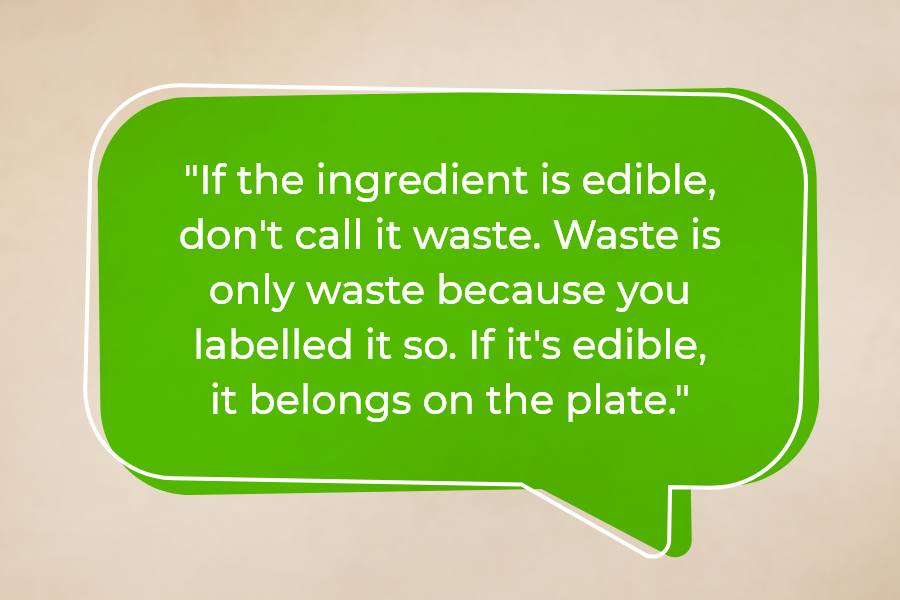
Why did you decide to write a book?
I want to help every chef that doesn’t know where to start with food waste reduction in the professional kitchen. It can be discouraging to embark on the zero-waste journey in an environment that is not always supportive, so I wanted to provide a guiding hand and support everyone that’s interested in eliminating food waste. I also approach this problem from a different viewpoint - changing the mindset. A lot can be achieved by changing someone’s mind and with the right motivation and support, food waste can be easily eliminated. To my surprise there is no other book that talks to professional chefs about food waste.
.png)
You say your book is thought-provoking for every chef that wants to effectively reduce and prevent food waste in a restaurant's kitchen. When do you think will it be a new trend in gastronomy?
It definitely is a trend already. We need to make sure that it becomes a new habit, rather a movement than a trend. Zero-waste makes so much sense, it saves money for the business, it challenges chefs to be more creative, it’s beneficial for our environment, and it also attracts new customers. I don’t see any downsides of reducing food waste in a restaurant’s kitchen. We just need to talk about it more.
I think that with a zero-waste approach we are going back in time to a way our grandparents cook, what do you think?
Absolutely. It’s funny how it was once common sense, and now we are labelled as ‘activists’ or ‘hippies’ for doing the same. It’s the least we can do to eat all the food that we have in our fridge. It’s the most normal thing to me, however consumerism has twisted it for us, telling us to always buy more and always buy something new. It’s easy to end up with a fridge full of food and not being able to eat it. If you think about it, what a privilege to have a problem like this.
Read on: All You Need Is Less
Thank you!
